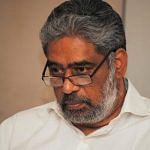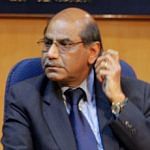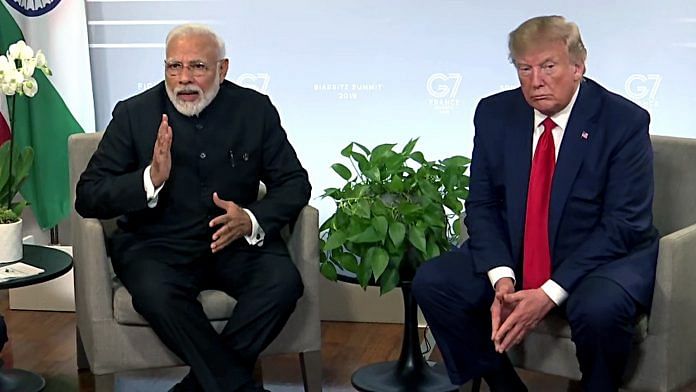The Opinion Makers

Challenge of new American politics
Raja Mohan | Director, Institute of South Asian Studies, National University of Singapore
The Indian Express
Raja Mohan argues that Delhi needs to find ways to open up the insular politics which US President Donald Trump and Democrat presidential hopeful represent. “Trump’s visit is an opportunity for New Delhi to think boldly about expanding Indian contribution to the stabilisation of Afghanistan and the Gulf region.”

Saba Naqvi | Author and journalist
The Times of India
In light of the upcoming Delhi elections, Naqvi argues that an election, which is usually fought on local issues, is now marked by violence and being communalised.
“Three incidents of shootings and violent speech, more suitable to civil war than electoral contest, are the backdrop to election in the national capital that will vote this Saturday. What was supposed to have been a local election fought on civic issues has transformed into an altogether different kind of tableaux in the changing nature of the Indian republic. Delhi has become a stage for every pitched battle about identity that is jolting India in 2020.”

Deepen the partnership with the European Union
Shyam Saran | Former foreign secretary and a senior fellow, CPR
Hindustan Times
Saran argues that after Brexit, India needs to rethink its strategy with both the United Kingdom and the European Union. While the equation with UK needs to be reframed with a narrower focus, the equation with EU needs to deepen as it is weaker without the UK and this is a good opportunity for India.
“EU, without Britain, would be weaker in some ways but could also gain in coherence. As an EU member, Britain provided its strongest link with the United States (US) and resisted more independent European initiatives such as in defence and foreign relations. With Britain gone and the US under Trump dismissive of the EU and of NATO, it is likely that Europe will begin to look at a more cohesive and relatively independent international role.”
 Introduce the cheetah, with caution and guidelines
Introduce the cheetah, with caution and guidelines
Neha Sinha | Member of Bombay Natural History Society
Hindustan Times
Sinha states that if India plans to bring the cheetah to the country, as reports suggest, then it should have a minimum requirement of setting up a grassland policy, and also be aware that conserving the cheetah will mean conflict with people.
“Conserving cheetahs will also mean dealing with conflict with people outside and in protected areas. While the relatively small cheetah is unlikely to have negative encounters with people, it may eat livestock. The model of co-existence with a carnivore constantly needs innovation and fine tuning.”
Kunal Bahl | CEO, Snapdeal
The Economic Times
Bahl is optimistic about Budget 2020 for MSMEs and the startup community, who are critical jobs providers. “Taxation reforms for employee stock ownership plans (ESOPs)” and “GoI’s move to boost access to finance for MSMEs…, provision for subordinate debt, a proposed extension of the restructuring window via RBI” will improve the sector and help create more jobs. The “formal and informal sectors, farming and manufacturing, employees and entrepreneurs, startups and large MNCs, in metros and smaller towns” will benefit too.
 The budget’s critics should take an in-depth look at its proposals
The budget’s critics should take an in-depth look at its proposals
V. Anantha Nageswaran | Member of the Economic Advisory Council to the Prime Minister.
Mint
Nageswaran thinks, “We may be parsing the budget far more than it deserves”. On the three criteria that Budget 2020-21 was expected to meet — enhancing transparency of numbers, putting money in the hands of the public and selling of government assets — the Modi government has moved forward.
 Like the curious incident of there dog that did not bark
Like the curious incident of there dog that did not bark
Shruti Rajagopalan| Senior research fellow with the Mercatus Center at George Mason University, US
Mint
Rajagopalan feels that for an economist, decoding this year’s budget was like Sherlock Holmes solving the case of the missing racehorse Silver Blaze and the murder of its trainer. She concludes that Finance Minister Sitharaman’s failure to acknowledge the dire state of the economy in her speech is proof that the government is “asleep at the wheel”.
 The increasing diversity of Big Tech’s speed breakers
The increasing diversity of Big Tech’s speed breakers
Siddhartha Pai | Founder of Siana Capital, a venture fund management company focused on tech
Mint
Pai criticises the “predatory practices of Big Tech”, particularly Amazon’s ability to sell products at prices far lower than its rivals, allowing it to be both “a retailer and a marketplace”. Pai recommends an international body-like organization be set up to “start thinking of how the benefits of technology improvements could be more equitably distributed”, similar to how advances in medicine are managed by WHO.
 Budget, a mixed bag for farmers
Budget, a mixed bag for farmers
Sukhpal Singh | Professor and Chairperson, Centre for Management in Agriculture, IIM Ahmedabad
The Hindu Business Line
Singh compares the Economic Survey and Budget 2020 “from a smallholder farmer and market efficiency perspective.” He finds the Survey “is silent on marketing aspects of the farm economy and is preoccupied with production-related aspects”, while “many of the 16-point proposals in the Budget on agriculture are statements of good intent and do not really offer anything new”. He does credit the Budget’s focus on water-stressed districts, solar power projects and agri-warehousing.
Govinda Rao| Former director, NIPFP and member, 14th Finance Commission
Financial Express
Rao also says disconnect between the Economic Survey and Budget is “much greater this year” given that the former analyses causal factors of the slowdown while the Budget speech ensured macroeconomic stability. He is disappointed at the lack of big infrastructure investment, and the tax reforms, which should have just been “phased out”.
Thankom Arun | Professor, University of Essex, UK
Reji Joseph| Associate professor Institute for Studies in Industrial Development, New Delhi
Financial Express

Now that the BPCL, CCI and SCI, have been put up for 100 per cent disinvestment along with the proposed sale of Air India, IDBI and LIC, the authors question the timing and intention behind PSU reforms. They suggest that India should take a leaf out of Singapore’s Temasek Holdings, a globalised company that sets the standard for professionalism in PSUs.
Mahesh Vyas | Managing direction & CEO, CMIE
Business Standard
Vyas criticises FM Sitharaman’s budget speech remark that India’s youth are not seeking jobs but creating them. He concludes that this statement was hyperbole and the government is in “denial mode”. He criticises the chapter on jobs in the Economic Survey, which is “actually about copying a Chinese model on exports based on being part of global value chains”.
Today’s Editorials
Hindustan Times:The recent incidents of firing outside Jamia Nagar, Shaheen Bagh and Jamia Millia Islamia point to both political and institutional failure, says HT. In ‘The BJP, Delhi police must act’, the daily demands that the police, which reports to the Home Ministry and the political leadership of BJP should meet their constitutional responsibility by safeguarding the democratic rights of the citizens.
The Times of India:In ‘Challenge for SC’, TOI says that Supreme Court’s decision to frame larger legal questions in matter relating to discrimination against women at various religious places, instead of looking at each issue separately, could pose a tricky challenge. The daily says that the nation will keenly watch the ongoing SC hearings as the complex societal realities have rendered many well-intentioned judgments ineffective.
The Indian Express: In ‘Exile and return’, Express decodes the Kashmiri Pandit narrative and says that it’s not singular. The more communal the issue becomes, less are the chances for the return of Kahsmiri Pandits as the chances of ‘otherisation’ in their own homeland are high. The dailystates that the problem in the valley is more political than communal.
The Hindu: Allowing private medical colleges to be attached to existing district hospitals in the public-private partnership is problematic, according to Hindu. In ‘Camel in the tent’, it says that destabilising people’s access to affordable healthcare system would be disastrous as the private sectors will have some control over district hospitals. A working draft of the agreement includes the provision that the private entities “can demand, collect and appropriate hospital charges from patients”.







